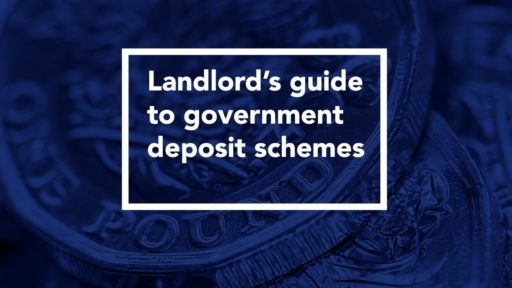Landlord insurance vs home insurance

- Do I need to take out landlord insurance?
- What is the difference between landlord insurance and home insurance?
- Is your property likely to be unoccupied?
- Can you afford your mortgage if your tenants have to move out?
- Should you consider adding legal cover to your policy?
- Finding the right insurance for your rental property
Do I need to take out landlord insurance?
If you have a property which you let out to tenants then yes, you should.
Anyone who owns property needs to have that property insured. This is a requirement when obtaining a mortgage, so most homeowners will have home insurance covering the building itself and usually its contents. However, if you’re thinking of letting your home or are buying another property in order to let it out, you’ll need to take out landlord insurance.
Ordinary home insurance is designed to cover you against damage to a property that you live in as your permanent home. If you own a property and are letting it out to tenants, you will need another product designed specifically for those risks.
However, there are some exceptions. For example, if you have a lodger and live in the property yourself then home insurance would be more suitable.
But there are several reasons why you need landlord insurance:
- If you have a buy-to-let mortgage on your property, it’s likely the lender has conditions that include taking out appropriate insurance.
- A standard home insurance policy won’t cover you if you rent out your property. If you have an existing home insurance policy in place and then rent out the property without telling your insurer, you’ll almost certainly find that you’ve broken the terms of the policy – and find yourself uninsured.
- You shouldn’t expect your tenants to be as concerned about problems with the property as they would be if they owned the home themselves. For example, a damp issue may go unaddressed for a longer period of time than if you lived in the property yourself.
In addition to this, as a landlord you face different risks, there’s always the danger that:
- Your tenants fail to pay their rent.
- They damage the property itself or any contents you have provided.
- Your tenants or any members of the public injure themselves on your property and you are found responsible
- Your tenants require temporary alternative accommodation if the property becomes uninhabitable, which would also see you lose rental income.
What is the difference between landlord insurance and home insurance?
Although you can add things such as legal expenses and home emergency cover, home insurance is a policy that covers your buildings and/or your contents and the risks insurance providers associate with being a homeowner.
Landlord insurance, on the other hand, includes various add-ons that are of specific use to someone who rents out their property. The cover is also designed to protect against the different risks that a landlord faces, which a homeowner wouldn’t.
There are a number of risks that landlord insurance covers that don’t come with a home insurance policy, including:
- Landlord contents insurance, which protects any items that you furnish the property with.
- Loss of rent, which covers you if the property is unoccupied because of an insured event, such as fire or flood.
- Alternative accommodation cover, which pays the cost of rehoming your tenants if they have to be rehoused whilst the property is uninhabitable.
- Home emergency cover, an optional add-on which provides 24-hour access to essential repairs in the event of a boiler breakdown, flood or other crisis in the property.
As with all insurance policies, the more cover you add to your policy, the higher your premiums will be. But making sure you have sufficient insurance in place will give you peace of mind that you, and your property, are protected if something goes wrong.
There are some other considerations that are important when looking at the differences between landlord and home insurance, including:
Is your property likely to be unoccupied?
Insurers deem the risk to be higher when a property is unoccupied but, by its very nature, a property you rent out is likely to be empty from time to time.
With a standard home insurance policy, most providers expect a property to be unoccupied for no more than 30 consecutive days.
Landlord insurance can provide cover for longer periods of non-occupancy, which can be useful if you’re struggling to find new tenants or if the previous occupants caused damage which needs to be repaired before you can re-let the property.
There may be conditions attached to this. You might have to make regular inspections of the property, for example, and make sure the gas, electricity, and water has been turned off.
Can you afford your mortgage if your tenants have to move out?
This is another benefit that can be included as part of a specialist landlord policy. If your tenants have to move out following an “insured event” – such as a flood or a fire, for instance – your insurance can cover your lost income.
If you have a mortgage on the property, you’ll need to keep making repayments, so insuring your income in these situations can be a financial backup for you.
Should you consider adding legal cover to your policy?
Having legal cover on a home insurance policy is a common add-on, but when you are a landlord you have a number of responsibilities, and there are various scenarios that can result in having to pay legal expenses.
These include:
- Your tenants refusing to pay their rent.
- An injured tenant suing you for medical cover and compensation, including loss of earnings.
The level of legal cover that comes with landlord insurance is generally greater than the level that comes with a standard home insurance policy.
Finding the right insurance for your rental property
Getting the right insurance on your property can make a huge financial difference if the unexpected happens. As a landlord there are multiple options available to you on top of basic landlord insurance, so it’s important to consider what is best for your situation and property. To get expert advice from one of the leading landlord insurance brokers in the UK, contact Alan Boswell Group on 01603 216399.




